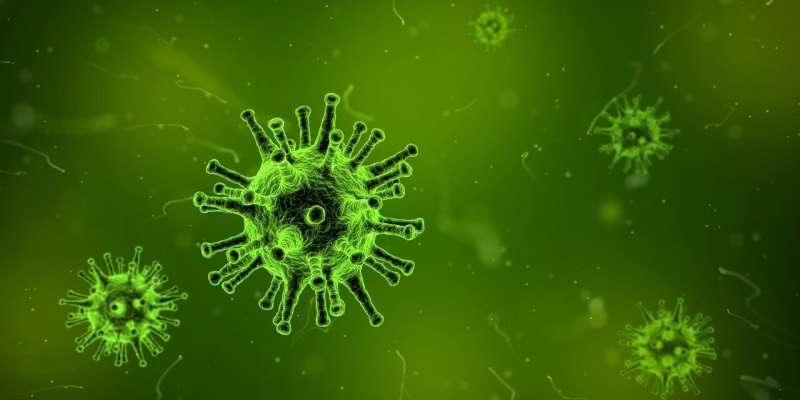EU agency takes centre stage in fight against coronavirus

As governments across Europe prepare for a sustained battle against the new coronavirus, a relatively small EU agency is becoming increasingly important.
The European Centre for Disease Prevention and Control (ECDC) is on the frontline of the fight against the virus in Europe that has infected more than 3,300 across the continent so far.
It has entered emergency mode to respond to the virus, working long days in their corononavirus hub in nondescript offices in Stockholm, where the agency is based.
Working with member states and public health agencies, it takes a broad view of disease control, anticipating how an epidemic moves and where appropriate measures need to be taken.
It is not looking at "the sickness of a single patient, but the epidemic overall", Josep Jansa, head of the section for epidemic intelligence and response, told AFP.
The agency then sets up guidelines—such as when it is appropriate to test for the virus in patients—so that medical resources are used efficiently.
"When you have 100 cases you can manage it in one way, when you have 10,000 you need to prioritise, because it is not possible to test all single cases," Jansa added.
The agency spotted the first signs of the new disease in late 2019—a cluster of pneumonia cases in China—and readied for a potential outbreak on European soil.
It has now thrown piles of resources into combatting the COVID-19 outbreak, which has infected over 93,000 worldwide and killed more than 3,200 people, mainly in China.
Italy has emerged as a hotspot in Europe with 2,500 cases, but the disease has reached 28 countries on the continent, with 85 deaths, according to ECDC figures.
Early warning
Set up in 2004, the agency emerged in the wake of the EU's disjointed response to the SARS virus outbreak that swept the world in 2003.
That outbreak laid apparent the need for a body to coordinate recommendations for how European government should respond to a similar crisis.
At first glance, its offices appear calm.
But markers of the coronavirus outbreak are all around.
Clocks on the walls show local time as well as the time in China's Wuhan, the epicentre of the outbreak where the virus first emerged last year.
TV screens show graphs and maps of the disease's spread, and the many computers all have a microscopic image of the virus as a desktop background.
Around the office, red LED displays show the message "PHE Level 2 Acute Phase".
PHE stands for Public Health Event and level 2 is the highest on a three-point scale, where zero is business as usual.
Since the agency upgraded the alert level at the end of January, two shifts work from early morning to late night to support member states' response.
But even though the agency is at its highest level, that doesn't mean the average person should panic, Jansa explains.
Levels don't necessarily indicate the severity of a disease, but rather how it affects the agency's workload.
Faced with the new coronavirus, the large number of cases in many different countries means the agency needs more people to assess the overall and regional situation.
Proactive approach
A big part of the agency's work focuses on staying ahead of the outbreak. Every day at six in the morning, the ECDC's epidemic intelligence team start their day.
It was this team that spotted signs of the outbreak before Chinese authorities made it official and by early January felt they had seen strong enough signals to activate the group's emergency mode.
"It's like a puzzle, you start to find the first piece, but as the days go by the other pieces fall into place and then you start to have a picture of your puzzle," group leader Thomas Mollet tells AFP.
To get the latest updates on the virus they scan media outlets, official websites, blogs, social media as well as some restricted platforms where health authorities around the world share information.
That information is then compiled and analysed together with disease experts and the communications department, in order to determine what type of action is needed.
According to Mollet, the tools now available to the team have enabled them to follow an outbreak of this size in real time for "the first time in history".
© 2020 AFP

















